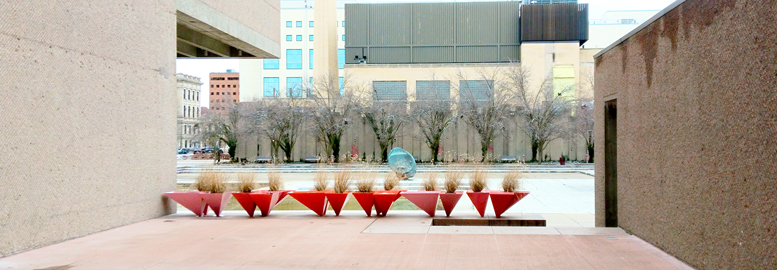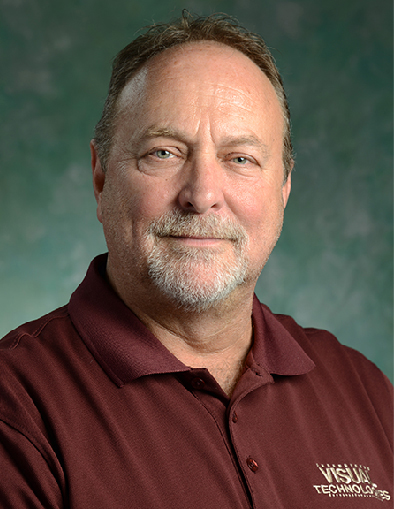Donating to a museum is not only good for the financial health of the museum, but for the mental health and well-being of the donor. Shirley M. Mueller, PhD, wrote in Psychology Today, May 1, 2022, that “Donors are looking for an internal feeling of warmth, an emotion, a feeling of satisfaction.”
Donations of cash, are of course, always welcome, but so are donations of other kinds such as in-kind donations, where an individual or a corporation donates goods or services for the benefit of the museum. Donating is good for the museum and good for the donor, because, as reported in “Museums are Fun—and Good for You!” on page 30: “Museums, such as the Everson Museum of Art, are not just a place to visit on a rainy day, but an engine for economic growth and a health benefit to society.”
Thanks to a generous donation by Candace and John Marsellus, a unique set of planters—designed by the architectural firm MILLIØNS—now adorn the Marsellus Court, which will become part of the new café experience.


Support Benefits the Community
“Visual Technologies is proud to sponsor Janet Biggs: Imagination and Desire in a Northern Landscape (page 10). We are a regional business and feel that our community benefits from having wonderful facilities that are integral to creating a thriving, connected, and enjoyable environment for all—and we are just glad to be part of it!”
—David J. Foor, President, Visual Technologies.
In December 2023, Janet Berl Burman created the Flamingo Tree for the 38th Annual Festival of Trees & Light (page 5). Not only did the tree provide a financial benefit, but, because of its delightful design, it was an iconic draw and epitomized the true spirit of the Festival.
“I became involved in the Festival of Trees & Light more than 30 years ago. I got involved year-round with fundraising and other volunteer efforts, and, eventually, my husband George and I became Circle Members. The reason I donate trees is because I know that it attracts many visitors and volunteers. It provides me with a creative challenge, and I enjoy interacting with the many friends I have made because of my involvement.”—Janet Berl Burman
The Kawai Piano
The Kawai grand piano was donated to the Everson by Bob Marino and Janet Gramza to continue its history as an ambassador instrument.
The 1984 Kawai grand piano was purchased from its original owner by members of the Pulaski Congregational Church in 2008 in memory of Rhea LaVeck, a music teacher and former music director. The church “sold” each of the 88 keys on the piano to raise $8,800 to buy the piano and start the LaVeck Concert Series to bring Classical music to an underserved area of Northern New York.
The concert series ran from 2009 to 2019 and brought dozens of solo and chamber musicians to perform at the Pulaski church, including the Everson’s first musician-in-residence, violinist David Fulmer. Bob and Janet helped run the concert series and became friends with David, who Bob has worked with in his live recording business, Grindstone Music.
Leading into the pandemic, the Pulaski church suffered dwindling membership. As a result, the concert series ended. When Bob and Janet learned the piano was being sold, they offered to purchase it from the church and donate it to the Everson.
The Everson Museum invites you to explore how you can help support the mission of the Everson. Every donation is appreciated and respected.
Visit everson.org/donate or give us a call at 315-474-6064.